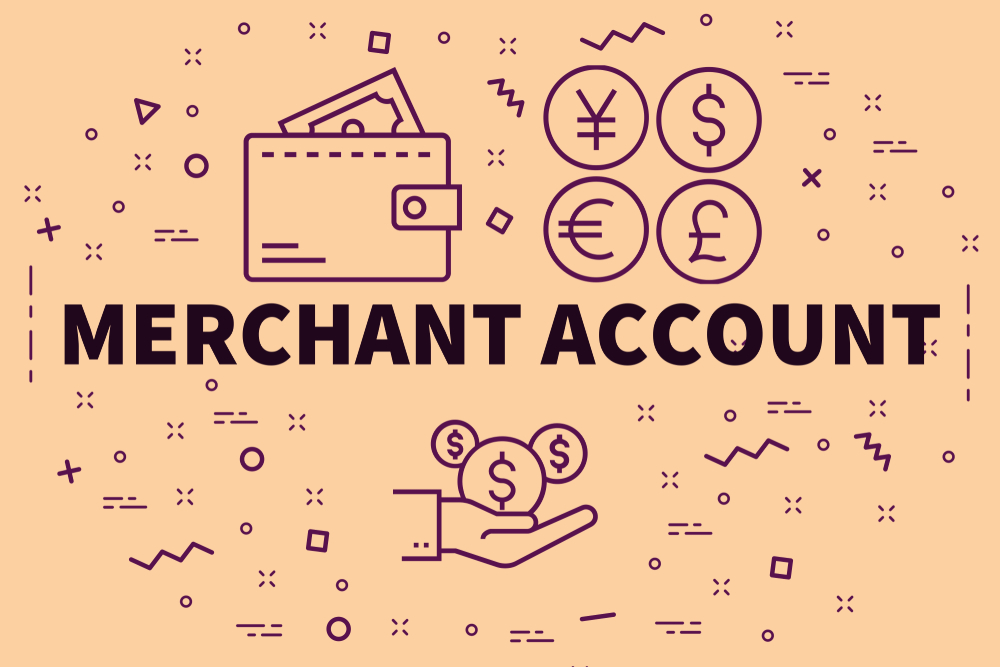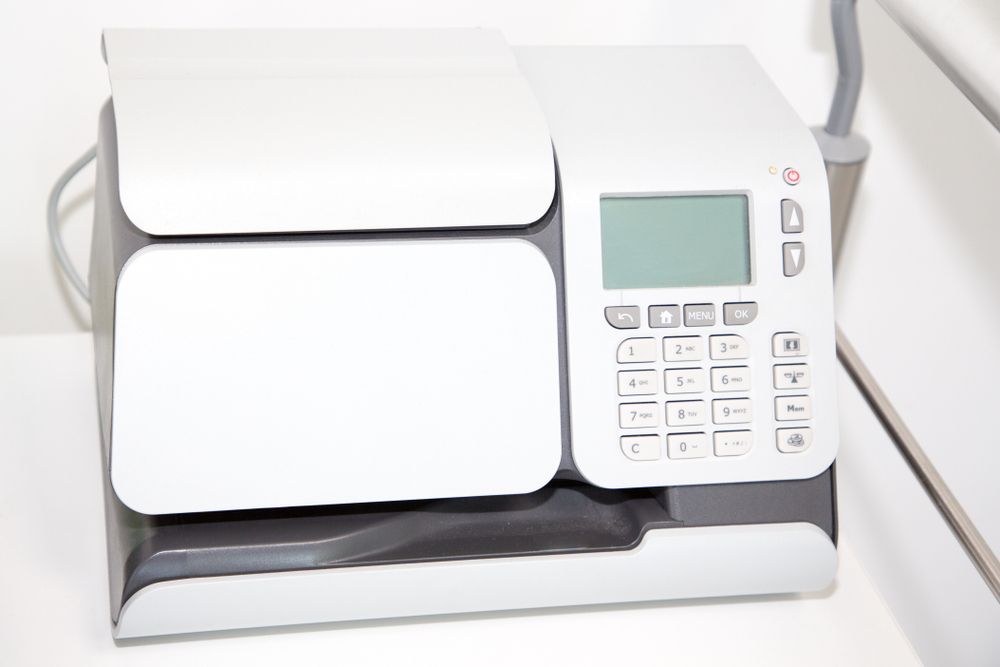
Prices are rising for various business supplies, something we’ve noticed on our cost side and in supplier emails announcing cost increases. And guess what because we are seeing price rises we are trying to find ways of passing price rises on to our customers. This suggests that the picture isn’t as rosy as many companies would like. With the new UK Government finding it hard to balance the books and small businesses understanding the affect of the 2024 budget on small businesses suppliers of business products and services are going to need to charge more money.
Upward-marching prices have been seen across the commercial sector since 2020’s COVID-induced supply chain disruptions. These saw costs spike for goods rise across the board, including in the B2B sector.
However, new forces are now playing a role as the economy evolves. Some reflect past issues while others imply secular rises, driving inflation higher.
This article explores the latest prices for various business products and how they might evolve throughout 2025. We focus on the lines you care about most, including card machines, photocopiers, and other electronic equipment/services for offices and commercial settings.
So, what’s been happening?
Unfortunately, prices for business products and services today are higher than previously. This section looks at what you are likely to pay right now for products/services, and what you get for your money.

Merchant accounts with card machines range (entire solutions) run with setup costs from £29 to £300, with ongoing fees of 1.5-2.5% on every transaction. Some providers also charge general “maintenance” or “subscription” fees, bumping up the total cost to businesses further.
The price for these services has seen modest increases in recent years, reflecting the increased cost of provision. The providers of merchant services are dealing with increased energy input prices and slightly higher wages since last year.
Vehicle tracking systems are becoming more sophisticated with basic products now available from £100 to £300 per vehicle. These provide the necessary tools many modern operations require to monitor fleet vehicles.
As you would expect, advanced vehicle tracking prices are higher. These GPS-based systems can track driver behaviour and generate AI-derived routes for maximal efficiency. Many cost up to £1,000 per vehicle annually, including subscriptions.
EPOS system prices used in the retail and hospitality sectors vary significantly, depending on the vendor. Companies can expect to fork out between £1,200 and £3,500 for the underlying hardware, with the software subscription coming in at around £40 to £110 per month.
Most price increases come from the monthly payment side. As such, businesses are paying more than last year for service subscriptions, adding to their transaction costs.
UK payroll services continue to grow in price with most companies paying between £5 and £10 per employee, per month. However, the market is changing to provide more value at a higher cost. Many firms now opt for tailored solutions with compliance features that can push the average monthly cost to over £15 per team member. Since the new Government mentioned increases in employers national insurance contributions we have noticed a big increase in people searching for payroll on our website. Historically when we have experienced this increase prices have tended to increase as well which is really related to simple supply and demand.
Franking machine that are used for helping businesses manage mail volume are also seeing price increases, although they are quite moderate. Rentals for these devices run from £17 per month and upwards, while outright purchases for basic systems are around £1,000.
Businesses wanting to upgrade sometimes spend more on the most advanced systems capable of handling vast quantities of mail. Franking machine prices for these units are often around £3,000 to £4,000, with the actual amount paid based on the final capacity and speed. It is not all bad news though. For a reasonably small usage company franking machine rental is still a relatively affordable option.
Business insurance prices are also rising faster than inflation. Quotes for smaller firms sit around £50 per month, with larger payouts for bespoke cover for established corporations.
Most insurers put their prices up by between 5% and 15% in 2024.

Photocopier prices have also seen rises, due to increasing production costs and supply chain issues. Most businesses now pay between £500 and £1,500 for a small machine and up to £6,000 for a high-volume, top-of-the-range unit.
Leasing photocopiers is still an option for smaller businesses and startup firms wanting to go “capital light.” These start at £30 per month and go up to £50 per month, with figures around 5% higher than in 2023.
Finally, business energy–an item every leader keeps an eye on–is surging due to geopolitical factors and, perhaps, shortages. Data suggests companies now pay £0.34 per kWh for this, up significantly from just a few years ago.
With 2025 just around the corner, we can now speculate about the likely prices of these inputs over the next 12 months. As you might expect, the news is mixed–most prices will rise, but others may stay the same or fall.
Merchant accounts with card machines will likely see a slight increase in prices in 2025. Hardware costs will rise again, perhaps into the £40 to £350 range, but it isn’t clear.
Issuers probably won’t raise transaction fees unless their wage or energy prices increase substantially. Because of this, these will likely remain in the 1.5% to 2.5% range. As such, the increase in the card machine price will be the main contributing factor (if any).
For small business owners who are not taking huge amounts of money by card or are looking for a reliable network when out on the road would do well to consider who they prefer when comparing zettle vs sumup.
Vehicle tracking systems may also see price rises if manufacturers continue to make their devices more sophisticated. Costs will likely start at £150 to £350 per vehicle next year, with AI-driven solutions/subscriptions rising to more than £1,200.
These cost increases will only partially come from rising unit input expenses. Most will be a byproduct of the costly investment required to develop artificial intelligence software and integrate it into business workflows.
Electronic point-of-sale (POS) systems may see a price decrease next year. However, it depends on how manufacturers adapt to the emerging cloud-based ecosystem. Dematerialisation could push prices lower, with monthly fees adjusting accordingly.
That said, larger businesses can still expect to pay more for custom solutions. EPOS system prices may go from £1,300 to £3,800 for hardware with fees for supporting digital architecture rising from £50 to £120, depending on the vendor.

Payroll services could also see modest price increases in 2025 in line with what we’ve seen elsewhere. Businesses need solutions that help them remain compliant with the evolving regulatory landscape and may be willing to pay 5% more next year (perhaps up to 8%).
These increases will likely start once workers return to the office after the festive break. Vendors will use that opportunity to increase prices to offset their costs.
Franking machines will likely continue their trend of modest price increases into 2025. Much of this, again, will come down to general input cost increases.
These changes mean that next year, the price of franking machines could be anywhere from £1,100 to £3,300, with leasing prices going up another 5% perhaps to £35-£55 per month.

Business insurance is a significant unknown because it depends on the risk insurers perceive in the market. Specific industries may see falling premiums if new legislation comes into force that lowers their uncertainty, but that is highly speculative.
Cybersecurity elements in business insurance packages are likely to come as a premium, simply because of the massive expansion of online fraud and the cost of data breaches. As such, companies will need to pay higher premiums for these add-ons, perhaps in the region of 5 to 10% next year.
Photocopiers will likely see upward pressure on their prices because of component costs. Extracting the minerals required to make these units is becoming more expensive as deposits become more marginal.
Small business models will likely retail at around £550 to £1,750 by the end of next year, with those offering more functions retailing for up to £7,000. While large enterprises are likely to absorb the bulk of these cost increases, they may also apply in the SME market.
Leasing will remain a viable option throughout 2025. However, the price businesses will likely pay will increase in line with the up-front unit costs.
We are finding that ricoh vs canon is a popular Google search at the moment which is why we have spent some time comparing the two brands.
Finally, is there any hope for business energy costs in 2025? The answer is highly uncertain. There is never a bad time to spend a few minutes comparing business energy quotes.
Donald Trump may bring the conflict in Ukraine to an end some time soon and seek to re-establish normal relations between Russia and Europe. The re-supply of gas via established pipelines will cut costs across the continent, including in the UK, by allowing more of the energy-generating substance onto the market. Hence, a price cut is possible.
However, other factors, such as dwindling shale oil in the US may also lead to energy price rises globally. This threat will likely last long until firms in the sector can develop alternative energy sources.
Overall, the prices for business equipment and services are higher today than during the same period in 2023. Printers, photocopiers, vehicle tracking devices, insurance premiums, and EPOS systems cost more than they did previously. Furthermore, many of those increases don’t seem to be slowing down in 2025, supporting the case for buying sooner rather than later or at least spending some time comparing business quotes.

Payroll management services are an essential component of business operations. They encompass various tasks related to employee salaries, tax calculations, compliance with labor laws, and more. By outsourcing these services, businesses can streamline their payroll processes, ensure accuracy, and focus on other critical aspects of running their operations.
The core function of payroll management services is to accurately calculate employee wages, salaries, and bonuses based on various factors such as hours worked or commissions. This includes handling deductions for taxes, benefits, and other withholdings.
Payroll management services handle the calculation and filing of payroll taxes, ensuring compliance with local, state, and federal tax laws. This includes income tax withholding, Social Security, Medicare, and unemployment taxes.
Many payroll management services offer the convenience of direct deposit, eliminating the need for physical paychecks and simplifying the payment process for employees.
Payroll management services often provide online portals or mobile apps that allow employees to access their pay stubs, tax forms, and other payroll-related information. This self-service feature saves time and reduces administrative tasks for both employees and employers.
Some payroll management services offer integrated time and attendance tracking systems. These systems enable employees to clock in and out, track their hours worked, and request time off, ensuring accurate payroll calculations.
Payroll management services may also handle the administration of employee benefits, such as health insurance, retirement plans, and flexible spending accounts. They ensure correct deductions and proper management of employee contributions.
Payroll management services provide detailed reports and analytics on payroll expenses, tax liabilities, and other payroll-related data. These reports help businesses track payroll costs, identify trends, and make informed financial decisions.
Payroll management services stay up-to-date with labour laws and regulations to ensure compliance. They handle tasks such as minimum wage calculations, overtime pay, and employee classification.
Payroll management services offer support and customer service to assist businesses with any payroll-related questions or issues. They provide guidance on payroll best practices and help troubleshoot any problems that may arise.
Outsourcing payroll management services allows businesses to save time, reduce errors, and ensure compliance with payroll regulations. By streamlining payroll processes, businesses can focus on other critical activities that contribute to their success.
If you’re looking for the best payroll service, consider reputable providers in the UK such as ADP, Sage Payroll, Xero, IRIS, MHR, PayEscape, Moorepay, and Pecunia Pro. Each provider offers different features and pricing options, so it’s important to consider your specific business needs and budget when choosing a payroll management service.
To simplify your search and get a free quote, try using our quote comparison tool. We are here to help you find the best payroll management service tailored to your business requirements.

Vehicle tracking is a technology that utilises GPS (Global Positioning System) to monitor the location, movement, and various data of vehicles in real-time. It is widely adopted by businesses to manage and oversee their vehicle fleets, as well as by individuals for personal tracking purposes.
A GPS tracking device is installed discreetly within the vehicle to enable vehicle tracking. This small device uses GPS satellites to accurately determine the vehicle’s:
The device then transmits this data to a central server or cloud-based platform using cellular or satellite networks.
Users can access the tracking data via a web-based interface or mobile app once the tracking data reaches the server or platform. This enables real-time tracking on a map, viewing of historical data, and the generation of reports.
Some advanced vehicle tracking systems offer additional features, such as:
Vehicle tracking systems provide a wide range of benefits for businesses, including:
Vehicle tracking can be equally valuable for individuals. It allows users to:
The cost of vehicle tracking systems can vary depending on several factors, including:
At Business Quotes, we offer customised solutions tailored to meet your specific requirements. Contact us to receive a personalised quote and explore the available options for vehicle tracking.
In conclusion, vehicle tracking utilises GPS technology to provide real-time information on vehicle locations and movements. With numerous benefits such as improved fleet management, enhanced security, and peace of mind, business vehicle tracking is an invaluable tool for both improving efficiencies and saving money.
For the best vehicle tracking solutions, consult a reputable provider like Business Quotes to ensure you find the ideal system to meet your needs.
As a business owner, you may have come across the term “merchant account” before. But what exactly is a merchant account, and why is it important for your business? In this comprehensive guide, we will delve into the world of merchant accounts, exploring their benefits and how they can enhance your business operations.

A merchant account is a specialised bank account that enables businesses to accept and process electronic payment card transactions. Whether you run a retail store, a restaurant, a mobile business, or an e-commerce site, having a merchant account is essential for accepting credit and debit card payments from your customers.
How Does a Merchant Account Work? When a customer makes a payment using their card, the card information is sent through an electronic terminal to the merchant acquiring bank. The acquiring bank then contacts the card processor and the card issuer for authentication. Once the transaction is approved, the acquiring bank authorises the payment and settles the funds in the merchant’s account.
To get a merchant account, start by identifying a merchant acquiring bank that suits your business needs. Different banks offer various services and fee structures, so it’s crucial to research and choose the right one for your business. Once selected, gather the necessary documentation, including your business registration and financial information, to open a merchant account. The bank will guide you through the application process and provide the required forms.
A merchant account is a crucial tool for businesses that want to accept electronic payment card transactions. It provides convenience, security, and efficiency for both businesses and customers. Here at Business Quotes, we understand the importance of finding the right merchant account provider. Reach out to our friendly team today to discuss your requirements and get a free personalised quote using our online quoting engine.
If you’re a business owner or considering starting a new venture, you may have come across the term EPOS Systems. But what exactly are they, and how much do they cost? In this article, we will explore the world of EPOS Systems, their benefits, and the associated costs.

What are EPOS Systems? EPOS, which stands for Electronic Point of Sale, is a system used by businesses to streamline their operations and improve customer experiences. These systems combine hardware, such as cash registers and card readers, with software that processes payments, tracks inventory, and performs other essential retail functions.
The cost of EPOS Systems can vary depending on several factors, including the size of your business, the number of locations you have, and the specific features and functionalities you require. It’s important to note that EPOS Systems are an investment in your business and can provide significant long-term benefits.
There are several types of EPOS Systems available, each with its own pricing structure. Some companies offer all-in-one solutions that include both the hardware and software, while others may charge separately for each component. Additionally, some providers offer subscription-based pricing models, where you pay a monthly fee for access to the system and ongoing support.
Now that you understand the benefits of EPOS Systems, let’s discuss the cost. As mentioned earlier, the price can vary depending on your specific needs. However, to give you a general idea, EPOS System prices can range from a few hundred pounds for a basic setup to several thousand pounds for more advanced systems with additional features.
Ongoing Costs: It’s important to note that the cost of EPOS Systems is not just a one-time expense. You may also need to consider ongoing costs, such as software updates, maintenance, and technical support. Some providers offer these services as part of their package, while others may charge separately.
If you’re concerned about the upfront cost of EPOS Systems, some providers offer rental options, allowing you to pay a monthly fee instead of a large upfront investment. This can be a more affordable option for businesses with limited budgets or those who prefer to spread out the cost over time.
EPOS Systems are a valuable tool for businesses, offering a range of benefits that can improve efficiency, accuracy, and customer satisfaction. While the cost of these systems can vary, it’s important to consider the long-term value they can bring to your business. By investing in an EPOS System, you’re investing in the future success of your business.
If you’re interested in finding the best EPOS Systems for your business needs we recommend that you compare multiple quotes. Visit our website to access a comprehensive guide that will help you find the right system for your specific needs and compare quotes from different suppliers. Whether you’re in the retail, hospitality, or any other industry, EPOS Systems can help take your business to the next level. Contact us today to discuss your requirements and get a personalised quote. Don’t miss out on the benefits that EPOS Systems can bring to your business.
Setting up a merchant account for your business is a crucial step in accepting customer payments, particularly through credit or debit cards. A merchant account is a specialised bank account that enables businesses to process electronic payment card transactions. Whether you are an individual or a business, having access to a merchant account is essential if you want to accept payments from your customers.

Merchant account providers focus solely on setting up and managing merchant accounts, while merchant services providers offer a more comprehensive range of services, including payment processing and related tools. When selecting a merchant services provider, it’s important to consider your priorities, such as fees, fraud protection, industry focus, and integration with other services.
One popular merchant services provider is Stripe, which offers both merchant accounts and related services. Stripe combines the functionality of a merchant account and a cheap payment gateway, making it a convenient option for businesses. However, there are many other providers available, each with their own features and benefits.
It’s important to note that merchant accounts come with fees, including ongoing payment processing fees, which can vary depending on the provider. These fees are necessary to cover the costs of processing electronic payments and maintaining the security of transactions. It’s important to carefully review the fee structure of different providers to ensure it aligns with your business’s needs and budget.
To set up a merchant account, businesses typically need to provide documentation, including registration and financial information. The provider will perform underwriting to assess the risk associated with your business and approve the merchant account. This process may involve a credit check. Once approved, you will be able to accept credit and debit card payments and operate online.
Setting up a merchant account for your business is essential if you want to accept electronic payments from your customers. It’s important to research different providers, consider their fees and features, and gather the necessary documentation to apply for a merchant account. Being able to compare card payment providers and setting up a merchant account, you can streamline your payment processes and provide a seamless experience for your customers.
If you’re looking for a merchant service provider, consider contacting us here at Business Quotes and we’ll help you find the best cost-effective solution for your business. We recommend using our free online quoting engine to compare different providers and find the best fit for your business. Start accepting electronic payments today and enhance your customer experience.

Processing payroll is an essential task for businesses of all sizes. It involves calculating employee wages, withholding taxes, and ensuring compliance with legal and financial regulations. To simplify this complex process, we have broken it down into five basic steps. In this guide, we will explore these steps and discuss how payroll services can streamline the process for businesses.
To begin processing payroll, it is crucial to gather all necessary employee information. This includes details such as employee names, addresses, National Insurance numbers, tax withholding information, and any other relevant data. Ensuring the accuracy of this information is essential to avoid discrepancies or errors in the payroll process.
Once employee information is collected, the next step is to calculate the gross pay for each employee. Gross pay refers to the total amount an employee earns before any deductions or taxes are applied. This calculation can be done by multiplying the employee’s hourly rate by the number of hours worked or using a predetermined salary amount.
After calculating gross pay, the next step is to deduct taxes and withholdings from the employee’s wages. This includes federal, state, and local income taxes, as well as National Insurance contributions. Additionally, any voluntary deductions such as retirement contributions or health insurance premiums should also be accounted for. Staying up-to-date with tax laws and regulations is crucial for accurate calculations and compliance.
Once all necessary deductions have been made, the net pay can be calculated. Net pay refers to the amount of money an employee takes home after all deductions and taxes have been applied. This is the final amount that will be distributed to the employee.
The final step in processing payroll is to distribute paycheques to employees and file the necessary tax documents. Paycheques can be distributed through various methods, including direct deposit, physical cheques, or electronic payment systems. Providing employees with detailed pay stubs that outline their earnings, deductions, and taxes is crucial. Additionally, businesses must file payroll tax returns and remit the withheld taxes to the appropriate tax authorities.
Processing payroll can be time-consuming and complex, especially for businesses with multiple employees. Payroll services offer automated payroll and calculations, tax filing support, employee portals, and intuitive interfaces to streamline the process. They can handle all necessary calculations, deductions, and tax filings, ensuring accuracy and compliance.
Some popular payroll service providers in the UK include ADP, Sage Payroll, Xero, IRIS, MHR, PayEscape, Moorepay, and Pecunia Pro. Each provider offers unique features and benefits, so it’s essential to research and compare them to find the best fit for your business. Factors to consider include cost, flexibility, customer service, security, compliance, scalability, and technology.
Outsourcing payroll to a reliable service provider can save businesses time and energy while ensuring accuracy and compliance. It allows business owners and HR professionals to focus on other essential tasks, such as growing the business and supporting employees. Whether you are a small business or a large enterprise, payroll services can provide the expertise and support needed to streamline your payroll process.
gathering employee information, calculating gross pay, deducting taxes and withholdings, calculating net pay, and distributing paycheque, and filing taxes. Payroll services can simplify this process by automating calculations, ensuring compliance, and providing user-friendly interfaces. By outsourcing payroll, businesses can save time, reduce errors, and focus on their core operations.
If you’re considering payroll services for your business, research and compare providers to find the best fit for your needs. Here at business quotes, we provide bias-free comparisons for payroll service providers at all budgets, always free of charge. Visit our free price comparison tool to get a quote today, or alternatively, get in touch with our friendly team for details.

As a business owner, accepting credit and debit card payments is crucial in today’s digital age. To facilitate this, you may have encountered the term “merchant account.” In this article, we will delve into the world of merchant accounts, discussing their various types and helping you understand the available options.
A merchant account is a business bank account that enables businesses to accept and process electronic payment card transactions. It acts as an intermediary between a customer’s bank account and a business’s bank account, allowing businesses to receive funds for transactions immediately. To open a merchant account, businesses must apply and be approved by a merchant acquiring bank. The application process typically involves providing business information, undergoing a credit check, and paying an application fee.
Designed for brick-and-mortar stores, retail merchant accounts cater to businesses that require physical terminals for card transactions. These accounts often have lower application fees and are suitable for businesses with a high volume of in-person transactions.
For online businesses, an internet/eCommerce merchant account is essential. These accounts allow customers to enter their card information online and have higher transaction fees compared to retail accounts. Internet/eCommerce merchant accounts are necessary for businesses that want to accept payments through their website.
Ideal for businesses on the go, mobile merchant accounts enable businesses to accept payments using mobile devices. With the rise of mobile payment technologies, such as contactless payments and mobile wallets, having a mobile merchant account is especially useful for businesses that operate at events, markets, or offer delivery services.
Some businesses still rely on taking orders and payments over the phone. Telephone merchant accounts are specifically designed for businesses that primarily sell their products or services through phone transactions. These accounts often have lower equipment costs and discounted processing fees.
Businesses that primarily sell their products through catalogues or mail order require mail order merchant accounts. These accounts have lower equipment costs and discounted processing fees, making them suitable for businesses that rely on mail order sales.
It’s important to note that fees for merchant accounts can vary depending on the provider and the type of account. Some providers use a fixed per-transaction rate, while others use interchange-plus or tiered pricing models. Additionally, there may be setup fees, monthly fees, gateway fees, minimum fees, annual fees, and customer service fees associated with merchant accounts. Businesses should compare quotes from different providers to find the best fit for their needs.
Merchant accounts are essential for businesses that want to accept credit and debit card payments. The different types of merchant accounts cater to various business models, whether it’s a physical store, an online business, a mobile operation, or a business that primarily operates through phone or mail order. By understanding the different types of merchant accounts and their associated fees, businesses can make an informed decision and find the best provider and compare card processing companies.
If you’re interested in setting up a merchant account for your business, reach out to reputable merchant account providers who can guide you through the application process and help you find the best solution for your specific needs. Consider using a free online quoting engine to compare quotes and make an informed decision.

If you’re a business owner who frequently sends out mail, you may have heard of the 45-day franking rule. But what exactly does it mean? In this article, we’ll explore the 45-day franking rule and how it can benefit your business.
A franking machine is a device that prints postage directly onto envelopes or labels, replacing the need for stamps. It calculates and prints the correct postage based on the weight and size of the mail, making the mailing process more streamlined and cost-effective for businesses. Franking machines work by weighing the mail item and determining the appropriate postage, which is then printed directly onto the envelope or label. Users can select the mail class and additional services, such as recorded delivery or special delivery.
The 45-day franking rule refers to the time period within which you can use the postage printed by your franking machine. Once you have printed the postage, you have 45 days to use it before it expires. This means that you can prepare your mail in advance and have it ready to send when needed, without worrying about the postage becoming invalid.
The 45-day franking rule offers several benefits for businesses. Firstly, it allows for better planning and organisation of your mailing activities. You can prepare your mail in batches and have them ready to send out when required, saving you time and effort. This is especially useful for businesses that send out large volumes of mail on a regular basis.
Secondly, the 45-day franking rule helps to reduce costs. By using a franking machine, you can save money on postage compared to using traditional stamps. For example, leading suppliers such as Pitney Bowes offer potential savings of 9p on Royal Mail 1st class stamps and 5p on 2nd class stamps. These savings can add up over time, especially for businesses that send out a significant amount of mail.
Additionally, using a franking machine gives your mail a professional appearance. Instead of using stamps, your mail will have a Mailmark indicia, which is a unique 2-D barcode printed directly onto the envelope or label. This not only looks more professional but also simplifies tracking and managing postage expenses.
When considering a franking machine for your business, it’s important to choose the right one based on your daily mail volume and budget. Some suppliers, like Pitney Bowes and Quadient, offer a range of franking machines with various features and benefits, including convenience, online re-crediting, advanced software, and high-volume capabilities. You can compare franking machine prices with Business Quotes to find the best option for your business.
The 45-day franking rule is a time period within which you can use the postage printed by your franking machine. It offers benefits such as better planning and organisation, cost savings on postage, and a professional appearance for your mailed items. By using a franking machine, you can streamline your mailing processes and enjoy the convenience and savings it brings to your business.
Here at Business Quotes, we work hand-in-hand with Franking Machine Suppliers that provide the best services at every budget range. Get a free quote with us today by using our free price comparison tool, visiting our Franking Machines Page or contacting our friendly team for advice.

Now that we’re in an era where speed is a priority, vehicle trackers have become increasingly popular for both personal and business use. These devices utilise GPS technology to track the location of vehicles in real-time or record data for later analysis. But are vehicle trackers worth it? In this article, we will explore the benefits of vehicle trackers and help you make an informed decision.
For businesses, vehicle trackers offer numerous advantages. One of the key benefits is streamlining fleet management. With real-time tracking, businesses can monitor the location of their vehicles and optimise routes to improve efficiency and reduce fuel costs. Vehicle trackers also provide valuable data on driver behaviour, allowing businesses to identify areas for improvement and implement driver training programmes.
Another benefit of vehicle trackers for businesses is improved customer service. With accurate tracking information, businesses can provide customers with real-time updates on the location of their deliveries or service technicians. This enhances customer satisfaction and builds trust in the brand.
Enhancing vehicle security is another important aspect of vehicle trackers. These devices can help prevent theft and aid in the recovery of stolen vehicles. In the unfortunate event of a theft, the GPS tracking system can provide the exact location of the vehicle, increasing the chances of a successful recovery.
Finding the best routes is crucial for businesses that rely on efficient transportation. Vehicle trackers can analyse traffic patterns and provide real-time updates on road conditions, allowing drivers to avoid congested areas and take alternative routes. This not only saves time but also reduces fuel consumption and wear and tear on vehicles.
Effective communication with drivers is essential for businesses with a fleet of vehicles. Vehicle trackers enable businesses to communicate with drivers through messaging systems, ensuring clear and timely communication. This improves coordination and allows for quick adjustments to routes or schedules.
But what about personal use? Vehicle trackers can also be beneficial for individuals. For parents of new drivers, vehicle trackers offer peace of mind by allowing them to monitor their teenager’s driving habits. This can help identify any risky behaviours and promote safe driving practices.
For those with elderly family members who still drive, vehicle trackers can provide reassurance. By tracking the location of their loved ones’ vehicles, family members can ensure their safety and respond quickly in case of an emergency.
Vehicle trackers can also be useful for individuals who want to protect their vehicles from theft. With real-time tracking and alerts, owners can take immediate action if their vehicle is stolen, increasing the chances of recovery.
When considering vehicle trackers, there are a few factors to keep in mind. Subscription costs vary depending on the provider and the level of service required. It’s important to consider the features and services included in the subscription to ensure they meet your needs.
Battery life is another important consideration. Some vehicle trackers require regular charging, while others have long-lasting batteries. Depending on your usage and preferences, choose a tracker with a battery life that suits your needs.
Vehicle trackers offer numerous benefits for both businesses and individuals. From streamlining fleet management to improving customer service and enhancing vehicle security, these devices have become an essential tool in today’s world. When considering a vehicle tracker, it’s important to evaluate your specific needs and choose a tracker that aligns with your requirements.
If you’re interested in finding out how do vehicle trackers work, our company, Business Quotes, offers a range of options to suit your needs. Whether you’re a business looking to optimise your fleet management or an individual seeking peace of mind, we can provide you with the right solution. Get in touch with our friendly team or use our online quoting engine to get a free personalised quote today. We’d love to hear from you and help you make the most of vehicle tracking technology.